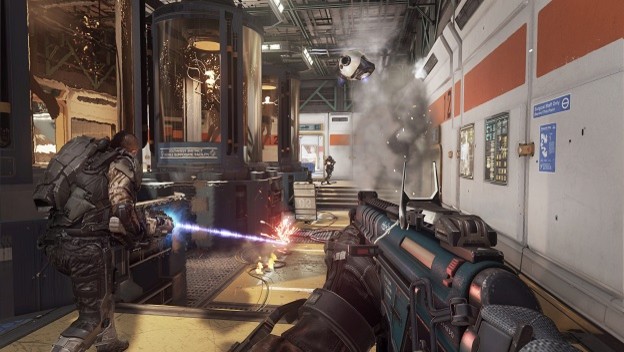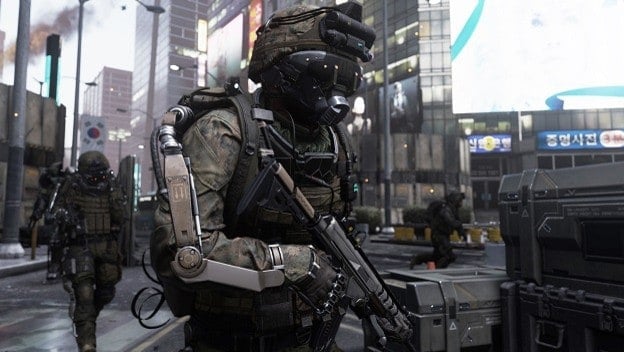Remember when games used to work right out of the box? Ah…those were the days.
There is a new game on the scene you might have heard of. It’s called Call of Duty something or other. Oh yeah…that’s it… Advanced Warfare ! Of course suggesting you have no idea what I’m talking about is absurd, as this has been one of the most hyped (and perhaps overhyped) titles of 2014. And while it will no doubt do phenomenal sales figures and set records, its earliest days have been nowhere near spotless in many people’s minds. Technical issues abound across all platforms, forcing this journalist to give its rocky debut a B+ at best.
So where do we begin? First up, we’ll start with the most egregious sin that can be committed in this day and age: not hitting the 1080p mark on the Xbox One. Now I’ve had a hard time pinning down exactly who is at fault here. Some suggest that Sledgehammer simply failed at designing the Xbox version in way that utilized its full resources properly (with it typically running at 1360×1080 but dynamically scaling to 1080 periodically), while others point to the obvious hardware limitations found in the Xbox (vs. its PS4 counterpart). Glen Schofield and Michael Condrey (co-founders of Sledge) both recently went on record stating that working with this latest gaming tech has certainly been no picnic. “Just getting the game onto next gen platforms was tough. All new engine and tech, learning our way around that was time consuming but that’s where the three years came in handy.” They said via a reddit Q & A. Couple that with an almost unplayable experience on the PC for some, and you’ve got a mounting list of hiccups that is growing almost by the hour. Texture problems, memory errors, graphical glitches, crashes (and a console bug that deletes your Xbox One pre-install) seem to be just the tip of iceberg.
Naturally, a company such as Sledgehammer has no intention of allowing these snafus to rain on their parade, as they already had a day-one patch primed and ready to go. The 1.03 update will address many of these issues, but it’s unlikely that everything will be perfectly smoothed over in one swift motion. Which again makes me wonder about the state of quality control in our industry. No one can forget the huge problems that plagued rival franchise Battlefield early on, the impacts of which are still felt to this day. Then of course you have the most recent example of #DRIVECLUB . Only after many sleepless nights by their support team do we finally see it making progress (although now it appears the issues may run deep into the game’s code). The typical defense is to blame the complexities that come with the advancements of our gaming technology. Yes I realize we’re not just dealing with simple 2D sprites anymore, and I get that. While I do sympathize, I also think I’m starting to get a bit numb to this excuse. If I take off my “gamer” hat for a moment and put on my “consumer” hat, things become fairly black and white. People have a right to expectations. What they expect, is to get what they pay for. End of story.

I think our industry has adopted a kind of “…don’t worry about it, we’ll fix it in post” mentality. Whether it’s DLC (which should have been included in the original release) or patches that fix problems that never would’ve been allowed to ship in the past, it seems this has become a pandemic of sorts. I’m not sure if longer development windows are the answer or if perhaps settling on a uniformed platform-architecture would help (so everyone is drawing with the same set of crayons). Either way, I pray some of this madness subsides in the future.
Because you have to admit, firing up a video game these days seems a bit like winding the crank of a Jack-in-the-Box. You’re never quite sure what’s going to pop out.
